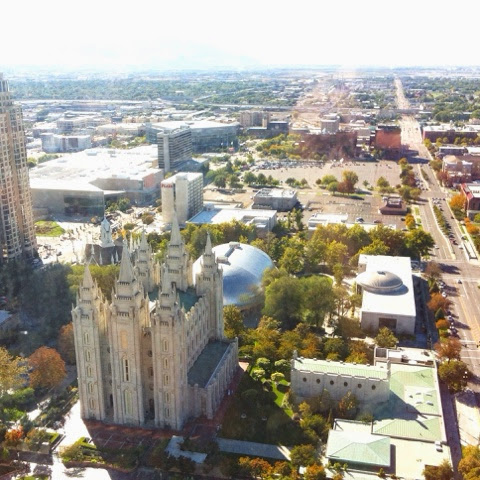O foolish Galatians! Who has bewitched you? It was before your very eyes that Jesus Christ was publicly portrayed as crucified. Let me ask you only this: Did you receive the Spirit by works of the law or by hearing with faith? Are you so foolish? having begun by the Spirit, are you now being perfected by the flesh? Galatians 3:1-3
As we sat yesterday discussing Mormonism and Christianity at an LDS Institute of Religion these verses kept coming into play.
For a time I was agnostic, there was little to sway me to believe any religion was more true than another. In my ignorance I obeyed the rules to be, "Accepted by whatever god was real." Yet, I wanted answers.
Not answers that were pre-written, pre-memorized, or pre-scripted, but real factual answers.
As I read more about the Bible I found evidence to support it's authenticity, this helped lead me to read the Bible and in so reading come to faith. But a large part of what helped was having real discussions when people used their own words to describe what we believe.
Sitting here in these discussion between Mormons and Christians has brought out an interesting tie between the two.
Most christians can speak the language but don't believe it. Most Mormons speak the language, believe it, but never think about it.
There is nothing more saddening to me than a Christian who only uses cliche to describe their heart-understanding of God. There's nothing more odd than a Mormon who says what they believe, believes what they say, but never think about the implications of the script.
As the Bride of Christ should we not aim to be unified? Should we not aim to speak openly about difficulty, pain and struggle in our small groups? A Mormon would never confess their issues because that means they wouldn't be able to go to Temple. But most Christians treat their local church the same. We are not Mormon! We are Christian, Christ as redeemed us from the curse of the law and seated us in the heavenlies, by grace you have been saved. Therefore we are completely free to love unconditionally, to speak unreservedly and to serve unflinchingly.
We are not Mormon, we are Christ's. We ought to speak and act like it.


